Australian sheepmeat exporters are looking to increase their exports of what they’ve defined as “carbon neutral” lamb to the United Kingdom (UK), according to Meat and Livestock Australia (MLA).
MLA regional manager for southeast Asia, international markets Valeska Valeska, said the group is working to expand its “footprint in the UK” and described how additional staff will soon be joining their already established access manager based in London.
She said increasing Australia’s “feet on the ground” in London and the associated investment, is “on the back of the UK agreement, to try and find out about what the market opportunities are in the UK”.
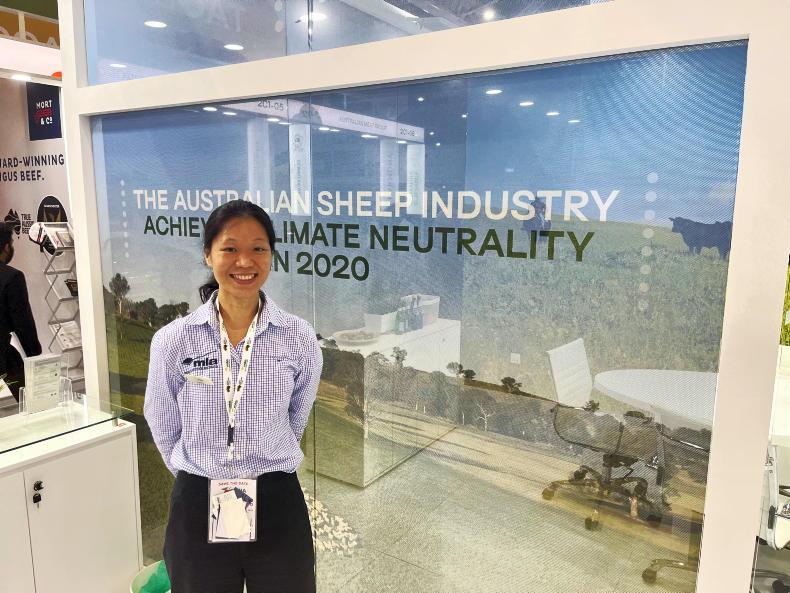
Meat and Livestock Australia (MLA) regional manager for Southeast Asia, international markets Valeska Valeska at Food Hotel Asia in Singapore.
The Irish Farmers Journal was speaking to Valeska, as well as a number of Australian lamb exporters who confirmed their intentions to work to increase lamb volumes to the UK directly, at food trade show ‘Food Hotel Asia’ in Singapore on Monday.
Competition
In July, Australian food exporters gained additional access to the UK market through a free trade agreement overseen by then UK foreign secretary and now Prime Minister Liz Truss. British farmers have expressed concern that the move will mean domestically produced meat will now have to compete with greater volumes of imported meat from Australia.
Meanwhile, 16% of Ireland’s sheepmeat exports went to the UK in 2021, a figure which may also be affected by Australian competition.
Australian exporters are aware of the level of Irish lamb exported to the UK, with Vaneska stating: “I know that a lot of Irish [lamb] goes into the UK as well so we’ll probably be, we will be competing with the Irish product. But I think for us, it’s going to be about getting people more familiar with Australian meat.”
However, she acknowledged that British consumers won’t have the same “level of understanding” of Australian lamb as they would for that of Irish origin and said that for Australia, “it will be a slow growth there”.
“[Australian lamb] is all natural and grass fed. I think we also have slightly different flavour compared to some of the other mutton and lamb in the region.
“But we probably are quite similar in our process and the whole quality and grading standards in Australia and definitely for the UK, these are the additional requirements,” she said.
Carbon neutral
The Australian MLA stand at Food Hotel Asia focussed heavily on the climate credentials of the country’s livestock production. A sign promoted the claim that Australian lamb is “carbon neutral”.
On this, Valeska said the Australian food industry “has a goal of becoming carbon neutral by 2030” and that there are a “series of sustainability frameworks” and measures to enable the sector to meet this target.
“For sheep, based on the current numbers and also on the base line indicators that we did, from 17 years ago, we are able to determine that yes, it is carbon neutral.
“This is pretty much meaning that eating Australian lamb [and] with Australian lamb and sheep numbers at the moment, consuming them does not cause any increase in greenhouse emissions for Australia,” she said.
Production
The MLA representative said that Australian sheep production is “back on the rise now” following a series of droughts since 2018.
“We’re now in a recovery and prices have been stronger as well. So, with those prices people are now going back into sheep production and producing more lamb as well. That should be adding a little bit more to our sheep numbers.
“This year, it’s back to about 70m and the thing we’re looking at is that’s probably where our comfortable numbers are. That’s depending on how things go, seasonality, conditions and also the market situation,” Valeska said.
Read more
Irish pork ‘least expensive at the moment’ – Australian importer
Australian sheepmeat exporters are looking to increase their exports of what they’ve defined as “carbon neutral” lamb to the United Kingdom (UK), according to Meat and Livestock Australia (MLA).
MLA regional manager for southeast Asia, international markets Valeska Valeska, said the group is working to expand its “footprint in the UK” and described how additional staff will soon be joining their already established access manager based in London.
She said increasing Australia’s “feet on the ground” in London and the associated investment, is “on the back of the UK agreement, to try and find out about what the market opportunities are in the UK”.

Meat and Livestock Australia (MLA) regional manager for Southeast Asia, international markets Valeska Valeska at Food Hotel Asia in Singapore.
The Irish Farmers Journal was speaking to Valeska, as well as a number of Australian lamb exporters who confirmed their intentions to work to increase lamb volumes to the UK directly, at food trade show ‘Food Hotel Asia’ in Singapore on Monday.
Competition
In July, Australian food exporters gained additional access to the UK market through a free trade agreement overseen by then UK foreign secretary and now Prime Minister Liz Truss. British farmers have expressed concern that the move will mean domestically produced meat will now have to compete with greater volumes of imported meat from Australia.
Meanwhile, 16% of Ireland’s sheepmeat exports went to the UK in 2021, a figure which may also be affected by Australian competition.
Australian exporters are aware of the level of Irish lamb exported to the UK, with Vaneska stating: “I know that a lot of Irish [lamb] goes into the UK as well so we’ll probably be, we will be competing with the Irish product. But I think for us, it’s going to be about getting people more familiar with Australian meat.”
However, she acknowledged that British consumers won’t have the same “level of understanding” of Australian lamb as they would for that of Irish origin and said that for Australia, “it will be a slow growth there”.
“[Australian lamb] is all natural and grass fed. I think we also have slightly different flavour compared to some of the other mutton and lamb in the region.
“But we probably are quite similar in our process and the whole quality and grading standards in Australia and definitely for the UK, these are the additional requirements,” she said.
Carbon neutral
The Australian MLA stand at Food Hotel Asia focussed heavily on the climate credentials of the country’s livestock production. A sign promoted the claim that Australian lamb is “carbon neutral”.
On this, Valeska said the Australian food industry “has a goal of becoming carbon neutral by 2030” and that there are a “series of sustainability frameworks” and measures to enable the sector to meet this target.
“For sheep, based on the current numbers and also on the base line indicators that we did, from 17 years ago, we are able to determine that yes, it is carbon neutral.
“This is pretty much meaning that eating Australian lamb [and] with Australian lamb and sheep numbers at the moment, consuming them does not cause any increase in greenhouse emissions for Australia,” she said.
Production
The MLA representative said that Australian sheep production is “back on the rise now” following a series of droughts since 2018.
“We’re now in a recovery and prices have been stronger as well. So, with those prices people are now going back into sheep production and producing more lamb as well. That should be adding a little bit more to our sheep numbers.
“This year, it’s back to about 70m and the thing we’re looking at is that’s probably where our comfortable numbers are. That’s depending on how things go, seasonality, conditions and also the market situation,” Valeska said.
Read more
Irish pork ‘least expensive at the moment’ – Australian importer




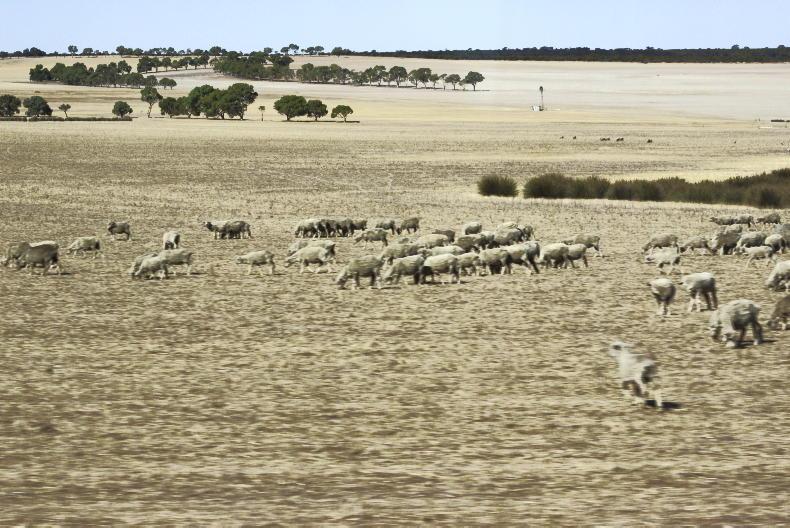

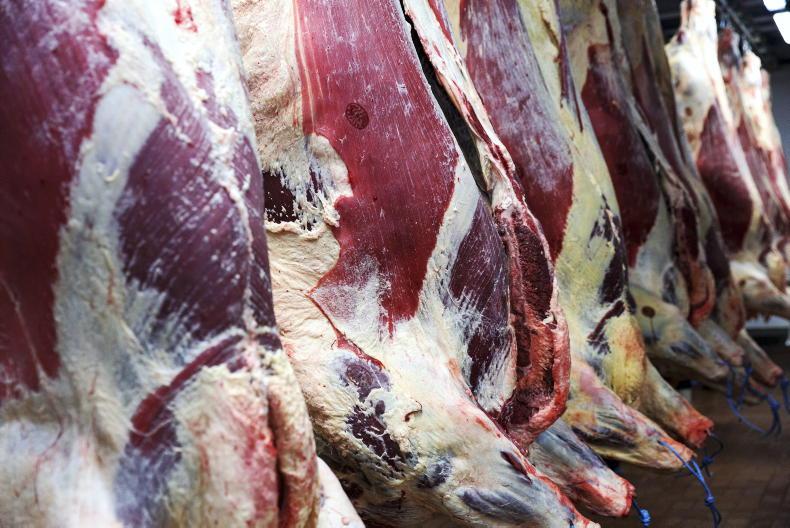

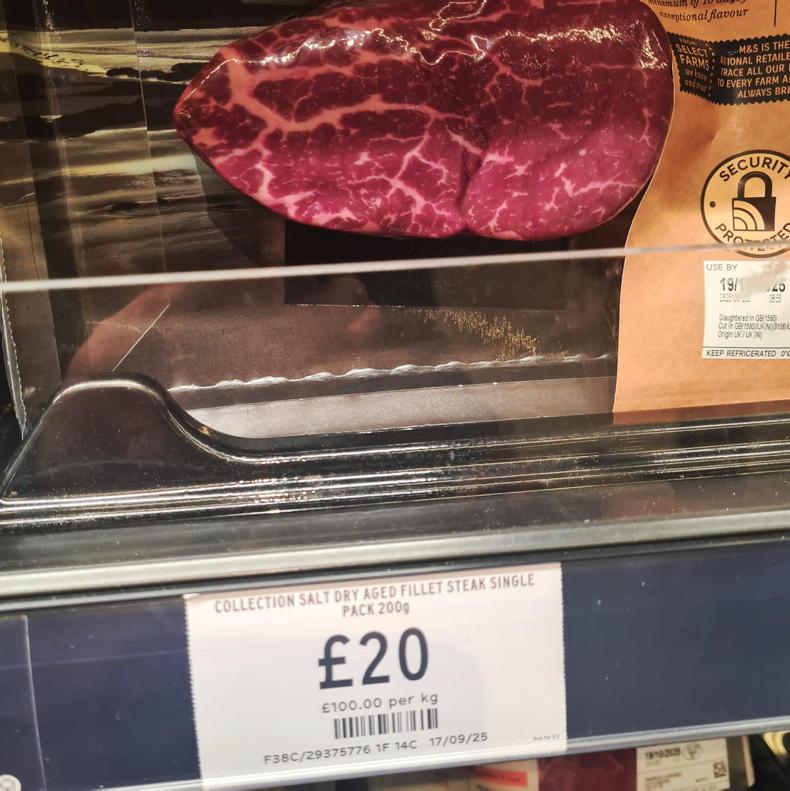
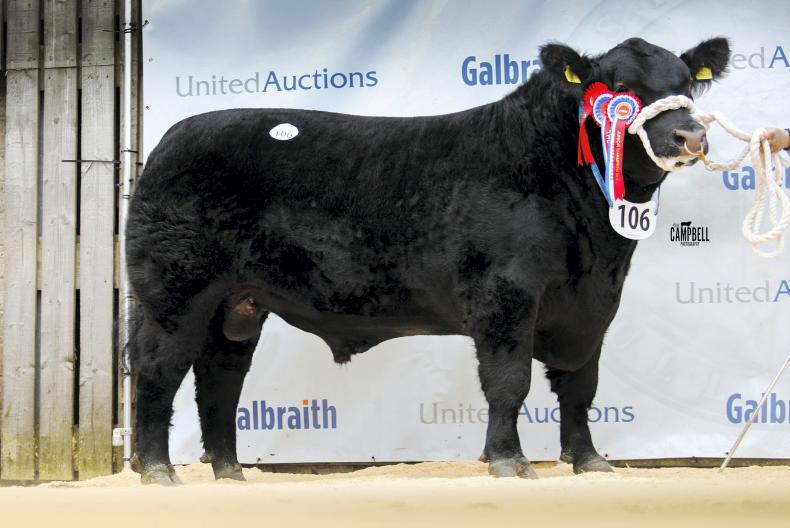
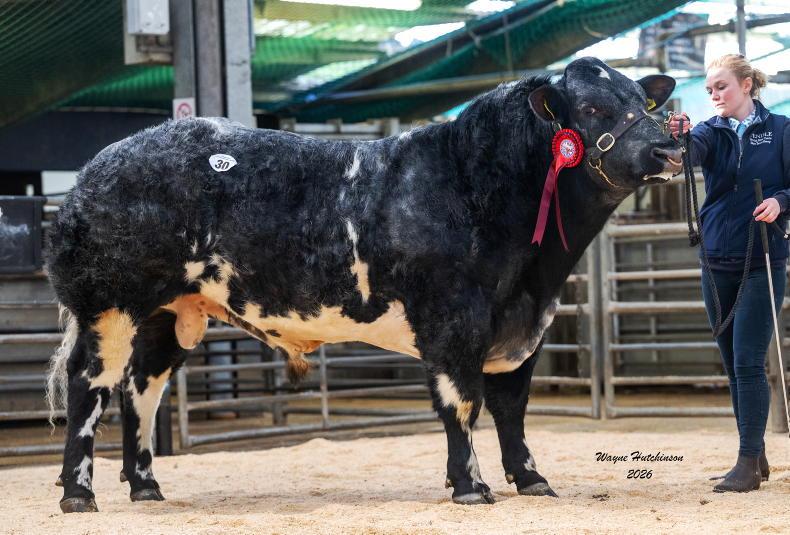
SHARING OPTIONS